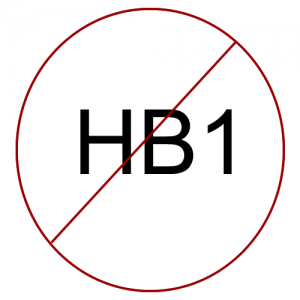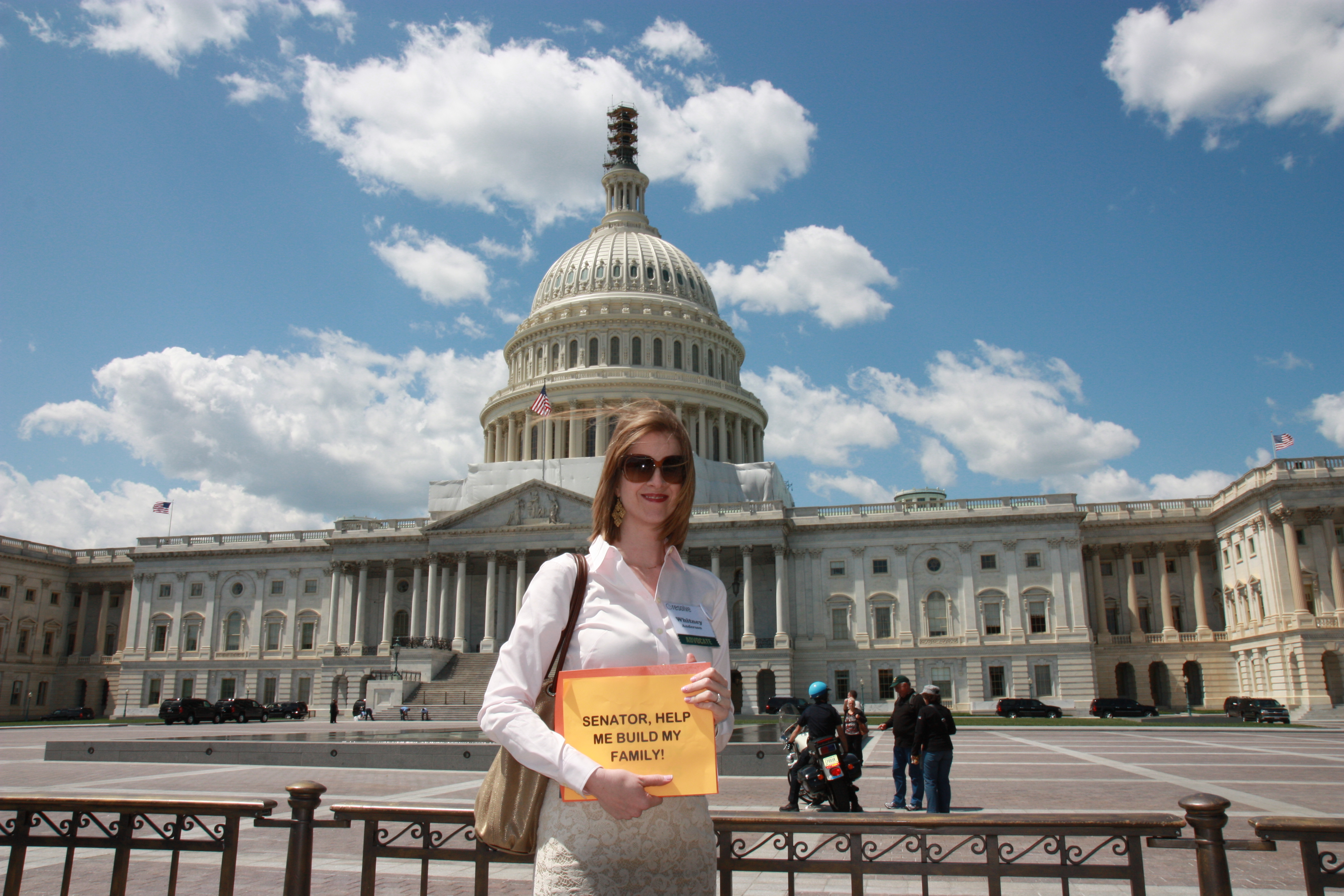 The anti-family personhood legislation has come to Virginia with the Virginia Personhood Bill. Personhood ballot and bill initiatives have been introduced in 13 states across the country. Recently, voters in Mississippi, one of the most socially conservative states in the nation, rejected a similar measure.
The anti-family personhood legislation has come to Virginia with the Virginia Personhood Bill. Personhood ballot and bill initiatives have been introduced in 13 states across the country. Recently, voters in Mississippi, one of the most socially conservative states in the nation, rejected a similar measure.
This is just the latest in a long string of government efforts to stick their noses into women’s health issues, where they don’t belong.
What does personhood mean?
Personhood legislation seeks to redefine when life begins. It essentially gives legal rights to embryos, with no distinction between embryos and human beings. It undermines access to safe and reliable infertility medical treatments; as well as contraception in some cases.
What’s the real issue?
The real issue here is abortion. This is a way around the direct issue. This is a way to legally ban abortion, without implicitly saying so. I do not seek to debate pro-life and pro-choice here. The problem here is that this legislation is too broad and it could have devastating unintended (or intended?) consequences, including banning some contraception and making IVF illegal.
What are the consequences for infertility?
If an embryo has full human rights, then anything that puts an embryo at risk could carry a criminal violation. That means IVF, people! This is very dangerous territory and could have devastating repercussions for the millions Americans suffering from infertility.
Here are just a few scenarios from RESOLVE’s website:
- If one or more microscopic embryos from an IVF cycle do not develop normally in the lab or fail to result in live births after transfer (all natural events), could the physician, lab, and/or patient be criminally liable?
- Would non-IVF treatments such as simple inseminations be threatened because they carry a risk of miscarriage? Would clinics with high miscarriage rates after inseminations be at risk for criminal liability? Could the miscarrying women be subject to criminal charges?
- Would women with fibroids or other uterine abnormalities be forbidden to try to have babies because the problems with their uteruses reduce the chances that an embryo will successfully implant after IVF or an insemination?
- Not all frozen embryos thaw successfully. Could embryo freezing be prohibited as too risky?
So, for me personally, would I be held criminally responsible for having miscarried? Because I have a history of repeat pregnancy loss? This is disgusting… If you think I’m reaching here, think again. Remember the legislation in Georgia & Utah?
What’s happening in Virginia?
Yesterday, on February 15, 2012, the House of Delegates voted on House Bill 1 (HB1) and the bill passed handily 64-32! I watched in dismay as they discussed the bill and then voted on it. I was also tweeting my delegate, Greg Habeeb, during the deliberations. Even though I had an idea what his views were on the bill from speaking to his aid earlier, it became perfectly clear from his tweets.
What about Section 7?
HB1 supporters claim that Section 7 of the Bill protects IVF and other assisted reproductive technologies. Section 7 reads as follows: “Nothing in this section shall be interpreted as affecting lawful assisted conception.”
Here is why RESOLVE believes section 7 does NOT protect the infertility community:
- If HB1 becomes law, many fundamental kinds of assisted reproduction will become UNLAWFUL. The word “lawful” is a red flag. The only assisted reproduction that will be defined as “lawful” is where this is no chance that an embryo could be damaged, destroyed, or lost. Assisted reproduction will be severely restricted.
- Cryopreservation and preserving the fertility of cancer patients will become UNLAWFUL. Certainly the cryopreservation (freezing) of embryos would be prohibited, because that carries some risk of loss of embryos. If microscopic embryos have the same Constitutional legal rights as born humans, then loss of embryos would be a wrongful death or a crime under HB 1. Freezing embryos allows patients to try to conceive a second time, or to give their child a sibling. It is also the standard of care for fertility preservation for cancer patients.
- Certain technologies and procedures that increase the success of IVF will become UNLAWFUL. Technologies like ICSI, the advancement that has significantly increased success rates when the diagnosis is male factor, as well assisted hatching and pre-implantation genetic diagnosis (PGD), all standard medical treatments that help people have babies — these could very well be prohibited if HB 1 becomes law.
- Patients will be forced to go out of state for treatment. HB 1 explicitly authorizes lawsuits for loss of embryos, and since criminal charges could also be brought for risking or losing an embryo, fertility doctors will not want to practice reproductive medicine in Virginia anymore.
In summary, section 7 sounds at first as if it protects infertility treatment from the operation of this extreme “personhood” measure, but it does not. HB 1 would render many standard, pro-family medical treatments unlawful and therefore would make it harder or impossible for many couples to build their families and treat their disease.
What happens next?
HB1 will now become a Senate bill and be heard by a Senate Committee. If it passes the Senate Committee, it will then be voted on by the entire Senate. If the Senate passes it, the Governor will need to sign it for it to become the law in Virginia. The Virginia legislature is in session until March 10, therefore, this bill will be moving fast to meet that deadline. So, we need to move fast to defeat it!
If you live in Virginia, what can you do?
- Send an email to your Senator. Even if you have already sent a letter, send another one. It’s so easy with this letter creator.
- Call your Senator’s office and request to speak to the Senator or Legislative Director. Tell them you care about people with infertility and you oppose the VA Personhood Bill, HB1. Tell them why Section 7 doesn’t protect us. See talking points. Click here to find out who your senator is.
- Meet with your Senator – Go to Richmond! If interested, email RESOLVE at info@resolve.org so that they can help you with talking points. This will need to happen in the next 7 days.
- Call your Virginia physicians – Ob/Gyns, Reproductive Endocrinologists, Nurses, and Embryologists – and ask them to get involved by helping to spread the message. They can contact RESOLVE at info@resolve.org for more information. The American Congress of Obstetrics and Gynecology and the American Society for Reproductive Medicine oppose Personhood legislation.
- Share – Share this information with your friends and family and ask them to call and email, too! Tweet it! Facebook it!
- Stay up date – Like my page on Facebook for updates. Or, follow me on Twitter.
———————–
Want more updates?
Subscribe to my blog
Like my infertility advocacy page on Facebook
Or, follow me on Twitter
———————-
Related Content:
Read about my day and my remarks in Richmond on 2/16/12 for RESOLVE’s press conference at the General Assembly and see all of the press we got!





No Comments